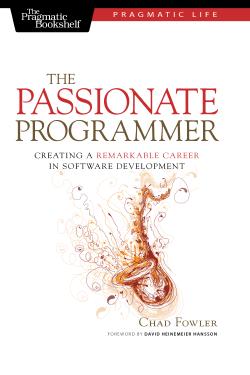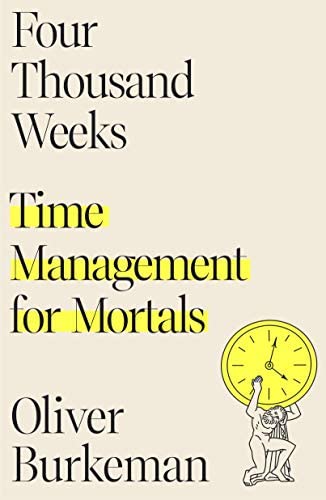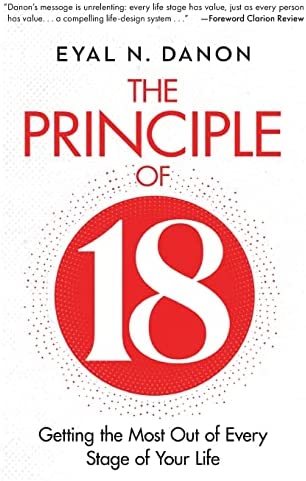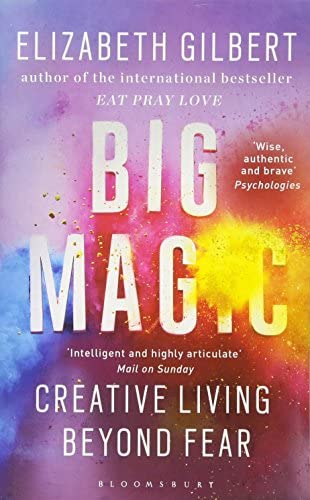My Reading Year, 2022
I made a conscious effort to actually read less this year. Kind of a weird way to start my first "Books I've read this year" sort of blog post, but it's the truth!
I personally can fall into a point where reading is a vice. I end up reading more than making things. So I tried to take a break this year.
But it didn't work!! I still read a few good books this year. Many of them are more in line with actual questions I had, specific areas I wanted to grow in, and the like. So this list is a pretty good representation of where my head has been this year.
Note: I could do the blog-thing where I provide Amazon affiliate links. But I'm not all that interested in getting paid cents if you purchase the book. I'd just rather you let me know if you've read a book. We can have a meeting of the minds on it! 🧠
Software / Career

The Pragmatic Programmer by Andy Hunt and Dave Thomas
Timeless principles for developing software. Such a wide range of topics relating to the job are covered, it feels like a must read for anyone new to the field! (👋) How to prototype, how to maintain software, how to manage projects, communicating with non-technical collaborators. It's all here! I even kept thorough notes throughout.

Pragmatic Thinking and Learning by Andy Hunt
Could have easily been titled: How to Learn Anything. A very thorough guide on utilizing the whole brain to gain mastery in a new thought-driven domain. Excellent read, plenty of great exercises for really connecting ideas.

The Passionate Programmer
Career advice for software engineering from a former full time sax player gone programmer. I am very squarely the target demographic for this book. It was very reassuring to hear that everything that applied in music similarly applies in this field.

The Personal MBA by Josh Kaufman
When I was a teacher, I tore through tons of business books. This one might be my favorite. Really, it's part nuts-and-bolts of business, and part addressing the mindset and personal psychology in taking on such a full bodied endeavor. It's also a great springboard into his reading list of 100 other great books for deeper diving.

Ask Iwata by Satoru Iwata
I've written about my favorite nuggets from this book already: serving those in front of you and Iwata's insight on working with creative people. It's not a full blown biography, but pieces of interviews Iwata has given that are strung together to tell his story in broad strokes. It turned out to be a surprisingly insightful read on leadership, creativity, and management. And Iwata's story is simply legendary.
Non-Fiction

Show Your Work by Austin Kleon
"How would Brian Eno write a Content Marketing book", as the author puts it. I'm a big fan of Kleon's books and blog. I don't think everyone doing creative work needs to go to the extreme of "Sharing something everyday" and becoming internet famous. But he writes about reframing "marketing" as "community building", being part of a scene over screaming into the void, and that alone is worth the cost of entry on this quick read.

4,000 Weeks by Oliver Burkeman
A playful antidote to self-help that somehow still fits in the genre. A pretty humbling read about being satisfied with doing less and taming infinite ambitions. More on the philosophy of deciding on what's worth doing when you know you have limited time instead of trying to cram everything in. I may not have mastered the material, I still dabble, but the message helped quell the inner voice that's admittedly frequently on The Search For Glory.

The Principle of 18 by Eyal Danon
A life changer, honestly. The gist is that there are 5 phases of life spanning 18 years. Dreamer, Explorer, Builder, Mentor, and Giver. Each builds on the previous, and each has different major motivations. Most relevant for me was reading about Eyal's proposed difference between the ages from 18-36 and 36-54. Before 36, it's crucial to be fully exploring and experimenting professionally so that you can execute without doubt and distraction in the following phase of life. A great balance, embracing the current trend towards minimalism, essentialism, hyper focus, etc, while also allowing time and space to actually breath and discover what's uniquely interesting.

The Time Paradox by Philip Zimbardo
Interesting lens on how the way we perceive time shapes us. Future focused folks are the sort that develop lists, set goals, and achieve them. Present focused people, alternatively, are "in the moment", enjoy richness and are generally more playful. Past positive people are strongly tradition focused, warm, and maintain strong relationships. A big generalization, there are many more interesting insights through the book. The authors conclude with recommending a healthy mix of the different perspective for a full and rich life back then, now, and in the future.

The 12 Stages of Healing by Donny Epstein
If you know, you know. Nothing compares to Network Spinal. Donny's book is a tremendous introduction to the philosophy as well as a field guide for navigating the different rhythms of life.
Music & Art

The Listening Book by W.A. Mathieu
Everyone should read this! Even non musicians. The book takes the pure meditative quality of listening to and reveling in sound from the start and further combs towards practicing music. Absolutely beautiful. So many wonderful insights on our relation to sound and being a creative musician in the world.

Big Magic by Elizabeth Gilbert
A re-read for me, one of my favorite books on living creatively. The secret is bouncing between serious, regular dedication to what you care about doing, and also not taking it that seriously, making the work playful as you do it. After spending so much time with creative work being purely a topic of career, this really helped with opening it up as a calling.

Gesture Drawing for Animation by Walt Stanchfield
I've picked up drawing this year, and this was my first book on it. Walt Stanchfield was a Disney animator and teacher to other Disney artists. Plenty of the techniques are still beyond me, but it's fun all the same. Walt writes with such a fire and emphasis on expression over accuracy. Not to mention his life story - an animator, tennis player, piano player, musician, poet, a real renaissance man! I also wrote a bit about his perspective on performing without an audience, a very new and real sensation for me.

The Jazz Piano Book by Mark Levine
The first Jazz book I've picked up that actually takes you from zero to improvising. Too many other books I've read assume some sort of prior knowledge or experience. Needless to say, I haven't finished it yet, but what I've gone through has already gotten me on the path more than any other method.

Hal Leonard Guitar Method
I've been learning guitar for a couple of years. I've largely done it the self taught way, hacking through chords from Radiohead and Coldplay songs, and trying to pick things up by ear. It's helped, but man, nothing beats a good ol' fashioned method book! This one focuses pretty heavily on lead guitar. Lots of spirituals and traditional tunes. I may never get called to play "Simple Gifts" for a gig, but playing these tuneful lines has helped my melodic playing and helped me really learn the notes on the guitar.

Remixing the Classroom by Randall Everett Allsup
An argument for how classroom music favors teacher-lead instruction and skill development (good things) in favor of nurturing creativity and really fostering a life long interest in engaging with music (not so good.) I love band and how it's taught today, and at the same time I agree with the author in that there's room for more genuine play in those spaces. Ends with a bit of pessimism, but it was interesting all the same.
Fiction

Laserwriter II by Tamara Shopsin
Quirky characters, old computer hardware, and moments of surrealism. I liked this book so much that I wrote an album inspired by it!

The Light Fantastic by Terry Pratchett
I'm starting a campaign to read every Discworld book. I've hopped around, and I've finally settled on reading them in order.
I read up to the 6th book this year, Wyrd Sisters. But the Light Fantastic was my favorite. Still wildly funny, but there's a more serious tone at the start that quickly reshapes even in the next book onward. If these books were illustrations, later books are fully colored in more of a cartoony style, and this one was done a darker, more engergetic ink style.